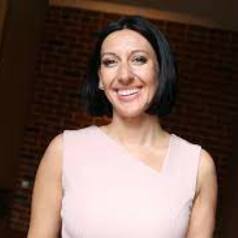
Patrycja Klusak
Affiliated Researcher, Bennett Institute of Public Policy, University of Cambridge and Associate Professor in Banking and Finance, University of East Anglia
Dr Patrycja Klusak is an Associate Professor in Banking and Finance at University of East Anglia and an Affiliated Researcher at Bennett Institute for Public Policy at the University of Cambridge.
Her research investigates the behaviour and regulation of credit ratings agencies (CRAs), and their effects on financial systems. Her work evaluates the extent to which regulations achieve their aims, or whether they lead to unintended consequences. Her research also examines the relationship between firms’ financial flexibility and their ratings, the extent of herding behaviour by CRAs, potential conflicts of interests in the CRA industry, and the effect of environmental, social, and governance (ESG) metrics on firm ratings. Her interdisciplinary work combines climate science and environmental economics with her expertise in empirical banking and applied econometrics to investigate how climate change risks have and could affect sovereign ratings.
Dr Klusak holds a PhD in Accounting and Finance and a BA in Banking and Finance from Bangor University, and an MPhil in Real Estate Finance at Cambridge University.
Less ![]()
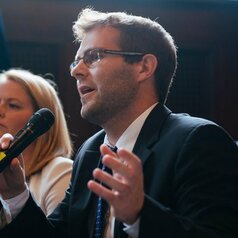
Patryk Labuda
Research Fellow, University of Zurich
Patryk I. Labuda is a Swiss National Science Foundation Fellow at the University of Zurich. A former practitioner with experience in central and north Africa, Patryk draws on interdisciplinary methods to study how international institutions interpret legal norms to achieve public policy aims. He specialises in international (criminal) law, human rights, and peace and security studies. He has 14 years of work and research experience in central and north Africa, with a regional focus on the politics of the Democratic Republic of Congo, Central African Republic, Sudan and South Sudan. His first book ‘International Criminal Tribunals and Domestic Accountability: In the Court's Shadow' (OUP) was published in 2023. Patryk holds a PhD from the Geneva Graduate Institute of International and Development Studies.
Less ![]()
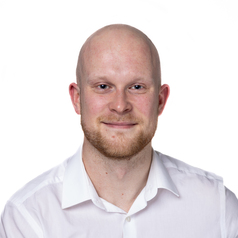
Patryk Makowski
PhD Candidate, Technological University of the Shannon
I am a devoted scholar with a strong interest in leadership dynamics and work behaviours, currently pursuing a PhD at the Technological University of the Shannon: Midland Midwest. My research, inspired by my Master's in General Business Studies and the global effects of the COVID-19 pandemic, focuses on the relationship between transformational leadership and work engagement in the context of remote work, encapsulating my dual commitment to personal growth and societal contribution.
Less ![]()
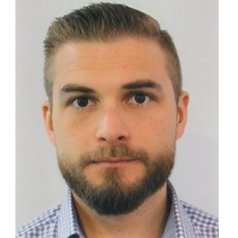
Patryk Szewczyk
Patryk is a security lecturer at Edith Cowan University and a member of the ECU Security Research Institute.
Less ![]()

Patti Shih
Research Fellow & Lecturer, University of Wollongong
I am Research Fellow at the Australian Centre for Health Engagement Evidence & Values (ACHEEV), and the Academic Program Director of the Bachelor with Honours Program at the School of Health & Society, University of Wollongong. I am a sociologist specialising in social and cultural aspects of healthcare and medicine. My current research focuses on public and consumer engagement in healthcare, and the implications of health technologies on medical overuse. I am currently developing new expertise and approaches in deliberative methods, co-design & co-research. I lecture in health policy, research methods, and justice and health.
Less ![]()
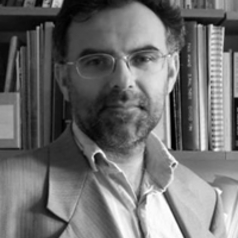
Paul Anand
I have held fellowships in Oxford and Cambridge Universities and am currently a Professor at the Open University, Research Associate at Oxford University and the London School of Economics.
My work stems from long standing interests in the foundations of decision sciences, used to be primarily normative, and have argued for the expansion of decision theory beyond older conceptions of rational choice, something that has, broadly speaking, taken place both in economics and philosophy. In recent years, I have been interested in the operationalisation of Sen’s capabilities approach to welfare economics and its use in debates about the measurement of progress.
Earlier work has been published in a variety of leading economics journals including The Economic Journal, Theory and Decision, Oxford Economic Papers, Economica, Journal of Health Economics, Annals of Operations Research and much of it is collected in my monograph Foundations of Rational Choice Under Risk published by Oxford University Press in 1993 (with reprints in 1995 and 2002). In addition, I have just edited and contributed to the Oxford University Press Handbook of Rational and Social Choice with Professor Prasanta Pattanaik (Riverside, University of California, USA) and Professor Clemens Puppe (Karlsruhe University, Germany) to be published in 2008. Work on capabilities and wellbeing is summarised in greater detail on the capabilities measurement project website.
I have also been interested in the interaction these theories and their development in policy contexts or experimental and survey based work. This work has been published in a wide variety of scientific journals including Science, Journal of Theoretical Politics, British Journal of Management, Social Theory and Practice, Social Indicators Research, Health Care Analysis and the Journal of Economic Psychology.
Having taught research methods at graduate level for five years and acted as a consultant researcher on economic statistics to the OECD and NAO my most recent work brings a these interests together with interests in the foundations of social choice. With about 25 colleagues, at the latest count, I have sought to demonstrate the extent to which the measurement of human capabilities is feasible along multiple dimensions and explore the techniques that can be applied to such measurements. This work has resulted in approximately a dozen publications and has been incorporated into research projects in Oxford, Glasgow and Buenos Aires.
Less ![]()
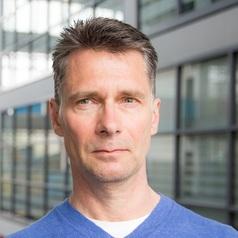
Paul Arnell
Reader in Law, Robert Gordon University
Dr Arnell has an interest in extradition, transnational criminal justice, criminal jurisdiction and human rights. He has published widely in those areas, including in the law journals International and Comparative Law Quarterly, the International Journal of Human Rights and the Criminal Law Forum and newspapers the Times, Scotsman and National.
Less ![]()
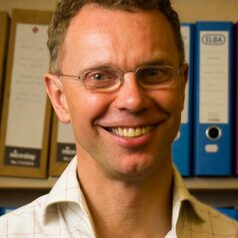
Paul Aveyard
Professor of Behavioural Medicine, University of Oxford
My research focuses on behavioural medicine. This is the integration of biological, psychological and sociological knowledge to prevent and treat disease and to aid rehabilitation. You can read more about our research on our team website here https://www.phc.ox.ac.uk/research/research-themes/health-behaviours-theme.
My work focuses on helping people change their behaviour, either to prevent serious disease, or as a treatment for that disease.
A lot of my work has examined interventions to help people stop or reduce their smoking and lately I have worked in helping people manage their weight if they have become obese.
People often use several drugs to help them stop smoking but our research suggested that combining these drugs does not help more than taking only one of them. Our research has shown that people who stop smoking put on a considerable amount of weight and we are investigating the best ways to prevent this weight gain but without harming the chance of stopping smoking.
One of our trials showed that people who were referred to commercial weight management providers lost more weight than people who tried to lose weight without support. However, people who went to their GP or practice nurse for support did no better than people trying without support. This result helped change government policy and local health organisations now contract with commercial weight providers. We have also shown that a brief 30-second behavioural intervention delivered by a clinician opportunistically can motivate a person to take up effective support and lose weight. Such brief interventions were highly acceptable to patients and easy for clinicians to deliver.
I work with several other organisations to improve health and healthcare. I am former president of the UK Society of Behavioural Medicine, a former trustee of the Association for the Study of Obesity, a member of the Society for Research on Nicotine and Tobacco. I am a senior editor of the journal Addiction and coordinating editor of the Cochrane Tobacco Addiction Group. I have worked on several NICE working groups and advised the Department of Health and NHS England on smoking and obesity.
I try to make my publications available to everyone. Please have a look for them here https://ora.ox.ac.uk/ or on researchgate.net.
I am an NIHR senior investigator.
Less ![]()
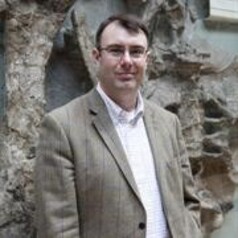
Paul Barrett
Individual Merit Researcher, Natural History Museum
My major research interests are centred on the evolutionary palaeobiology of dinosaurs and other extinct amniotes. In addition, I am involved in projects to investigate macroevolutionary mechanisms, the evolution of Mesozoic terrestrial ecosystems and potential biases in the fossil record. Research is concentrated in three main areas:
1. Pattern and process in macroevolution. Controls on dinosaur diversity through time; testing of plant–dinosaur co-evolutionary scenarios; clade-clade interactions; correlated progression; influence of the rock record, collection bias and climate on fossil reptile diversity.
2. Functional morphology, palaeobiology and palaeoecology of herbivorous amniotes, principally sauropodomorph and ornithischian dinosaurs.
3. Taxonomic, systematic and faunal revisions of dinosaurs and other extinct reptiles (including lizards, plesiosaurs and ichthyosaurs).
Less ![]()
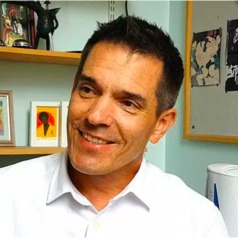
Paul Bowman
Professor of Cultural Studies, Cardiff University
BA, English; MA, Cultural Studies; PhD, Cultural Studies (cultural theory, political theory, deconstruction).
Author of many books on cultural theory, popular culture, film and martial arts; founder and director of The Martial Arts Studies Research Network, and co-editor of the journal Martial Arts Studies.
Most recent book: The Invention of Martial Arts: Popular Culture Between Asia and America (Oxford University Press, 2021).
Less ![]()
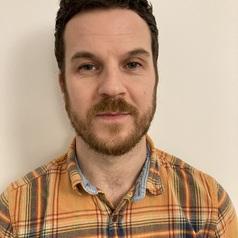
Paul Chambers
PhD Candidate in Creative Writing, University of Bristol
Paul Chambers is an award-winning poet and a PhD candidate in Creative Writing at the University of Bristol. His creative practice centres on haiku poetry and his research focuses on poetic negative space as a vehicle for contemplative ecology. He also holds an MA in Screenwriting from the London Film School.
Paul has contributed creative and critical material to the Times Literary Supplement, the Washington Post, the BBC, NHK World, Wales Arts Review, and the national Japanese newspapers, the Mainichi and the Asahi Shimbun. He is also a regular Arts critic for BBC Radio Wales.
Paul's individual poems have won the Museum of Haiku Literature Award, the NHK Haiku Masters Award, and the Golden Triangle Haiku Award. His 2021 collection, The Dry Bones won the Haiku Foundation’s Touchstone Distinguished Book Award – the most prestigious prize in the field of English-language haiku.
Less ![]()
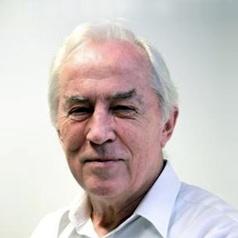
Paul Compton
Emeritus professor in Computer Science and Engineering, UNSW Sydney
I worked at the Garvan Insist of Medical Research for 20 years, initially as biophysicist but then as a computer scientist. At the Garvan I worked on one of the first medical expert systems to go into routine use. In 1990 I moved to Computer Science and Engineering at UNSW, where my research focus was mainly on better ways to build expert or knowledge-based systems and resulted in a family of techniques known as Ripple-Down Rules. This work was supported by a number of ARC grants, and has been successfully commercialised by Pacific Knowledge Systems (now Beamtree) and other companies internationally. I was one of the founders of PKS, but am not involved with Beamtree. I was also the Associate Dean (research) for the Faculty of Engineering at UNSW for 3 years and and head or acting head of the School of Computer Science and Engineering for 12 years. I retired in 2010 and am currently an advisor to Rich Data Corporation.
Less ![]()
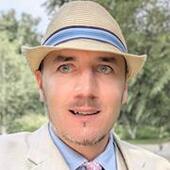
Paul Cuffe
Assistant Professor, School of Electrical and Electronic Engineering, University College Dublin
Less ![]()
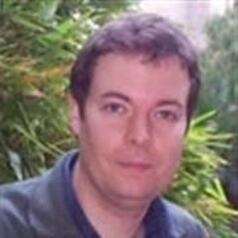
Paul Delfabbro
Professor, School of Psychology, University of Adelaide
I have worked at the University of Adelaide since 2001 and I lecture in the areas of learning theory as well as methodology and statistics. My principal research interests are in the area of behavioural addictions (gambling and technology) as well as child protection and out-of-home care. Most of my research work involves statistical analysis of cross-sectional and longitudinal surveys and experimental studies.
Less ![]()
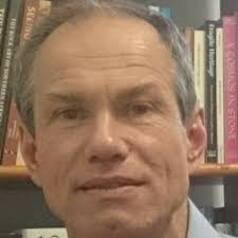
Paul den Hoed
Senior Lecturer, School of Chemical and Metallurgical Engineering, University of the Witwatersrand
Although trained in chemical engineering, I am practised in pyrometallurgy and in chemistry at high temperatures, mostly in the chemical thermodynamics and kinetics of gas-solid reactions (oxidation, reduction and chlorination of oxide and sulfide minerals). I have also worked in teams testing and designing novel processes.
My work in R&D over the last three decades has fostered an invaluable set of skills. I combine a grasp of principles and techniques in "process mineralogy" and chemistry with an understanding of processes in chemical and metallurgical engineering. I retain a practised hand in the laboratory. I communicate clearly in English through writing, speaking and discussion. I have mentored students and colleagues in the craft of research: in critical thinking around process fundamentals and theory; in developing arguments; in marshaling data and evaluating hypotheses; and in communicating.
Less ![]()
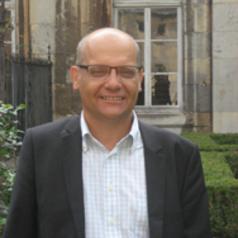
Paul Dietschy
Professeur d'histoire contemporaine, Directeur du Centre Lucien Febvre (EA 2273), Université de Franche-Comté – UBFC
Ancien élève de l'École Normale Supérieure de Fontenay-Saint-Cloud, agrégé et docteur en histoire, Paul Dietschy est professeur d'histoire contemporaine et directeur du Centre Lucien Febvre à l'université de Bourgogne-France-Comté. Chercheur associé au Centre d'histoire de Sciences Po, il est spécialiste de l'histoire du sport et du football et de l'Italie contemporaine. Parmi ses publications : Histoire du football, Paris, Tempus, 2016, Le sport et la Grande Guerre, Paris, Chistera, 2018 et avec Stefano Pivato, Storia dello sport in Italia, Bologne, il mulino, 2019.
Less ![]()
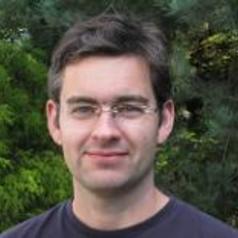
Paul Dimeo
Senior Lecturer in Sport, University of Stirling
My main areas of research interest and expertise relate to drug use in sport and anti-doping policy.
I was a visiting Fulbright Commission Scholar at the University of Texas, Austin from September to December 2012, working on a project entitled: ‘The Doping of Elite Athletes in International Sport and the Politics of the Cold War, 1950-1990'.
I am the co-ordinator of SPS9SP Sports Policy. I also contribute to SPS9R7 Readings in Sports Studies, SPS9D8 Sports Dissertation and dissertation supervision.
My major research interest is doping in sport and the development of anti-doping policies. This has led to several publications including the prize-winning monograph A History of Drug Use in Sport, 1876-1976: Beyond Good and Evil (Routledge, 2007). I have recently completed three projects funded by the World Anti-Doping Agency. I have published on other policy issues including racism in sport, the migration of football players, tourism, and hosting major sports events.
Less ![]()
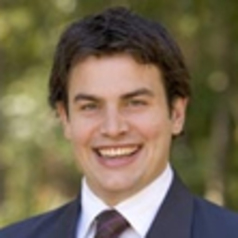
Paul Docherty
Paul's research interests lie in empirical finance and capital markets, focusing primarily on asset pricing. His research has been published in journals including Accounting and Finance, Applied Economics and The Australian Journal of Management.
He is the chief investigator for a large external grant that was awarded by Platypus Asset Management in 2011 and continues to work collaboratively with professionals in the funds management industry.
Less ![]()
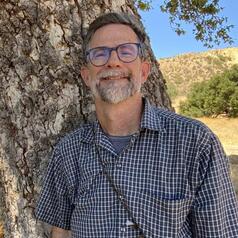
Paul Draus
Professor of Sociology; Director, Master of Science in Criminology and Criminal Justice, University of Michigan-Dearborn
From 1992 until 2000, I was a public health field worker, specializing in tuberculosis control, first in New York City and then in Chicago. I earned my PhD from Loyola University Chicago in 2001, and wrote my first book based on my dissertation field work, Consumed in the City: Observing Tuberculosis at Century’s End (Temple University Press, 2004).
At UM-Dearborn, I teach a variety of classes, including Medical Sociology, Urban Sociology, Sociological Theory, Deviant Behavior, Restorative Justice and Inside-Out Prison Exchange. I have published numerous articles on substance abuse, from crack cocaine in small towns in Ohio to heroin in the city of Detroit, and on urban green space. Lately I have been spending a lot of time in alleys.
Less ![]()
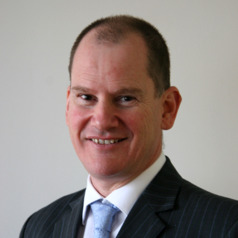
Paul Dugdale
Director ANU Centre for Health Stewardship, Australian National University
Paul Dugdale is a public health physician with experience as a policy adviser, senior executive, juristictional chief health officer and hospital staff specialist.
He currently consults as Principal Medical Advisor for Aspen Medical Advisory Services Pty Ltd.
His clinical practice has been in chronic disease management including obesity medicine.
He is Clinical Professor of Public Health in the ANU School of Medicine and Psychology, and Director of the ANU Centre for Health Stewardship in the College of Health and Medicine.
He was previously Chair of the Australian Healthcare and Hospitals Association and is currently President of the Friends of the School of Music at AN
Less ![]()
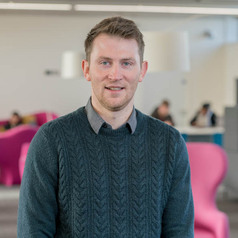
Paul Felton
Senior Lecturer in Biomechanics in the School of Science and Technology, Nottingham Trent University
Paul Felton is a Senior Lecturer in Biomechanics in the School of Science and Technology. He has authored or co-authored world-leading, peer-reviewed research, has contributed to written-press and media features, and is the Principal Investigator or Co-Investigator for multiple PhD researchers.
Paul is one of cricket's most prominent applied researchers focusing on the technical characteristics linked to performance and injury. His main research interest lay within optimising individual sporting performance and has utilised predictive computer simulation models with industry collaborations including the England & Wales Cricket Board and the English Institute of Sport.
Paul also contributes to the teaching on the Sport and Exercise Science, Sport Science and Coaching, and Sport Science and Mathematics courses. He is the module leader of Applied Human Movement Science for Sport, and contributes to the following modules: Introduction to Human Movement Science, Analysis of Human Movement, Applied Sport Science, as well as supervising undergraduate and postgraduate projects.
Less ![]()
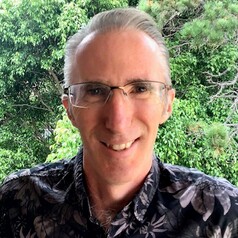
Paul Ginns
Associate Professor in Educational Psychology, University of Sydney
Dr Paul Ginns is Associate Professor in Educational Psychology in the Sydney School of Education and Social Work at The University of Sydney, teaching foundational and elective educational psychology units across undergraduate and postgraduate education degrees. His research focuses on educational implications of human cognitive architecture and embodied cognition, motivation and engagement, and creativity.
Less ![]()
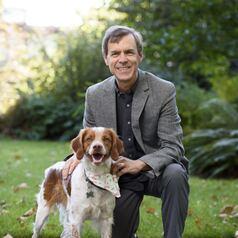
Paul Gronke
Professor of Political Science and Director, Elections & Voting Infomation Center, Reed College
Paul Gronke is a Professor of Political Science at Reed College who studies American politics, specializing in convenience and early voting, election administration, public opinion, and elections. Additionally, Paul serves as Director of the Elections & Voting Information Center (EVIC), an election science research center he founded two decades ago. His researchers are co-located at Reed College and Portland State University (PSU). Under Paul’s leadership, EVIC has become a national center of excellence for policy research and publicly engaged scholarship into election administration, election reform, and electoral integrity.
Paul has published dozens of peer-reviewed articles, monographs, and reports on topics ranging from public opinion and trust in government, public opinion about government use of torture, congressional elections, early and no-excuse absentee voting, and automatic voter registration. Paul is regularly featured in national and regional media outlets as a commentator on politics and elections. He also serves on the Advisory Board for the MIT Election Data Science Lab (MEDSL) and the National Vote at Home Institute‘s Circle of Advisors, and he was awarded an Andrew Carnegie Fellowship in 2020.
Paul received his PhD in political science from the University of Michigan and has held academic positions at Duke University and Appalachian State University in addition to Reed College. Paul’s academic credentials–including his curriculum vita, courses taught, and other research papers, can be found at his personal Reed web page.https://blogs.reed.edu/paul-gronke/
Less ![]()
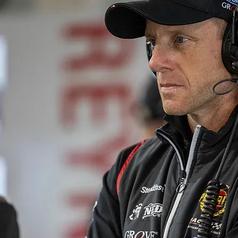
Paul Haines
Manager, Sport Engagement (Performance), Griffith University
Paul Haines is an Accredited Exercise Scientist and High Performance Manager (ESSA), as well as an Accredited Professional Level 2 Strength & Conditioning Coach (ASCA). Paul has 23 years of training professional sporting teams and individuals within a wide variety of sports, including AFL, swimming, athletics, and a variety of motorsport categories including F1, V8 Supercars, MotoX, Moto GP, Superbikes, Speedway, Karting & Off-Road Rally.
Paul's passion is researching & analysing the overall demands of a sport, and then implementing both physical & cognitive training programs simultaneously to improve overall performance.
Using these skills, Paul has also worked as a consultant with the Australian Army over the last 7 years, implementing physical and cognitive stress training protocols for teams and individuals to enhance overall performance within Defence.
Less ![]()
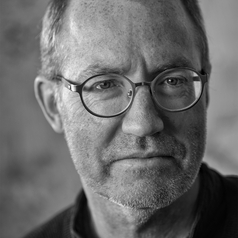
Paul Ham
Lecturer in narrative history, Sciences Po
I write about war and political conflict. Sometimes I cheer up and write about philosophy and religion. I teach narrative history part-time at Sciences Po in France (though I'm on a prolonged break). I've written 14 books (see my website and Wikipedia page for details). Over recent years I've written another, "The Soul: A History of the Human Mind", to be published by Penguin Random House in 2024. It seeks to show that beliefs – religious, political and ideological – are the engines of history.
Less ![]()
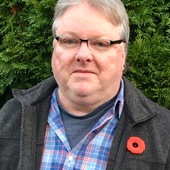
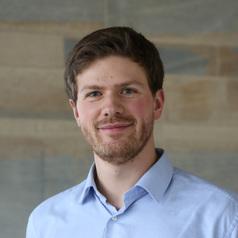
Paul Hanel
Research assistant professor, University of Essex
My research interests include social, personality, political, and cross-cultural psychology as well as science communication and research methods.
A significant part of my empirical work includes human values (e.g., freedom, loyalty, security). Among other things I am interested in how people perceive the values of other people, and whether living in cities or countries in which other people share one's values has positive effects on one's well-being.
Currently, I am especially interested in similarities between groups of people. While people often tend to assume that values, attitudes, and abilities differ between, for example, women and men, younger and older people, or people from different countries, the amount of similarities between these groups is on average pretty large, typically between 80 and 95%. In my research I investigate the effects of highlighting similarities between groups of people.
For a full list of my publications see my Google Scholar profile
https://scholar.google.com/citations?user=huR7aNgAAAAJ&hl=en
Less ![]()

Paul Hetherington
Emeritus Professor of Writing, Faculty of Arts and Design, University of Canberra
Less ![]()
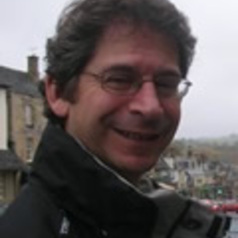
Paul Heywood
Paul Heywood graduated with an MA in Politics (First Class) from the University of Edinburgh, then did postgraduate studies in Madrid and at the LSE, from where he received his MSc(Econ) and PhD (Politics). Before joining the University of Nottingham, he taught at the University of Glasgow and at the University of London. He also worked for the Economist Intelligence Unit, London (1989-93). He has been a member of the ESRC Research Grants Board (2001-05) and was Dean of the University of Nottingham Graduate School from 2003-07. He is currently Director of the University of Nottingham’s ESRC Doctoral Training Centre, which supports research students in the social sciences. Between 2003 and 2009 he was co-editor of the international journal Government and Opposition, and is currently Chair of the Board of Directors. Professor Heywood is author, co-author or editor of fifteen books and more than eighty journal articles and book chapters. His research focuses on political corruption, institutional design and state capacity in contemporary Europe. In 2006, he was appointed Adjunct Professor at the University of Hunan (China), where he is Senior Adviser to the Center for Clean Governance. He is a Fellow of the Royal Society of Arts (elected 2002), and an Academician of the Academy of Social Sciences (elected 2012).
Less ![]()

Paul Hodkinson
Professor of Sociology, University of Surrey
Paul Hodkinson is Professor of Sociology at the University of Surrey. His research focuses on fathers and fathering, youth cultures, pathways through adulthood and experiences of digital social media spaces. He is particularly interested in understanding people's experiences of contemporary life course journeys and transitions.
His books include 'New Fathers, Mental Health and Digital Communication' (with Ranjana Das), 'Sharing Care: Equal and Primary Carer Fathers and Early Years Parenting' (with Rachel Brooks), 'Media, Culture and Society', 'Ageing and Youth Cultures' (with Andy Bennett), 'Youth Cultures: Scenes, Subcultures and Tribes' (with Wolfgang Deicke) and 'Goth: Identity, Style and Subculture'.
He is currently co-editor of the journal, Sociology, and was previously co-editor of Sociological Research Online.
Less ![]()

Paul Holland
Ocean and Ice Scientist, British Antarctic Survey
I am a late-career ice/ocean scientist in the Shelf Seas group at BAS, and an honorary professor at the University of Bristol. My research focusses on the physics of polar oceans, sea ice (frozen seawater), and ice sheets (glacial ice). This research is broadly motivated by understanding changes in global ocean circulation and sea-level rise. I primarily study Antarctica and the Southern Ocean. The Antarctic Ice Sheet is currently losing ice, causing sea-level rise, and this has been caused by changes in ocean melting. My current research focus is to understand why this ice loss is occurring, and how it may change in future.
Less ![]()

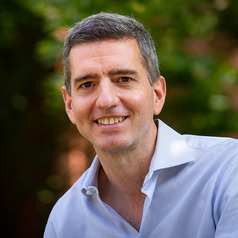
Paul Howe
Professor of the Practice, Tufts University
As director, Paul Howe is responsible for the overall strategy and administration of the Feinstein International Center. A recognized expert on the topic of famine, he brings to his role over 17 years of experience working with the United Nations World Food Program (WFP). In his last assignment, he served as WFP Country Director in Nigeria. He previously worked in Afghanistan, Uganda, and Laos and at WFP’s headquarters in Italy. Even while serving as a senior leader in WFP, Paul continued his research and publication activities on the issues of hunger, famine, and the humanitarian-development-peace nexus. Paul received a bachelor’s degree from Harvard University, a master’s degree from Princeton University, and a doctorate from the Institute of Development Studies at the University of Sussex.
Less ![]()

Paul Huebener
Professor of English, Faculty of Humanities and Social Sciences, Athabasca University
I am a professor of English at Athabasca University, where I am studying representations of sleep in Canada. My book Restless in Sleep Country: Imagination and the Cultural Politics of Sleep is due out from McGill-Queen's University Press in May 2024.
My previous book, Nature’s Broken Clocks: Reimagining Time in the Face of the Environmental Crisis (U Regina Press, 2020), was a finalist for the Alanna Bondar Memorial Book Prize for the Environmental Humanities and for the ASLE-UKI Book Prize for Ecological Creative Writing. My first book, Timing Canada: The Shifting Politics of Time in Canadian Literary Culture (McGill-Queen's UP, 2015), was a finalist for the Gabrielle Roy Prize.
Less ![]()
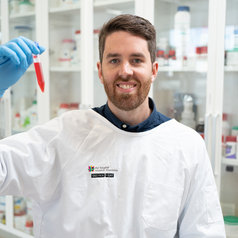
Paul Joyce
Senior Research Fellow, University of South Australia
Dr Paul Joyce is Head of the Translational Nanomedicine & Biotherapeutics Group at the University of South Australia where his research focuses on utilising pharmaceutical science to transform therapeutic outcomes across a wide range of diseases, including cancer, mental health, metabolic syndrome, and antimicrobial resistance. Dr Joyce received his PhD in Pharmacy from the University of South Australia in 2016 where he was awarded a University Medal for Most Outstanding Thesis and the Norton Jackson Award for most outstanding research in materials science. Working at the interface of materials science and drug development, Dr Joyce engages closely with key stakeholders who enable clinical and commercial translation of his research, including the pharmaceutical industry, clinicians, and health consumers. Dr Joyce’s leadership within this field is evidenced through his publication of over 70 peer reviewed papers in leading international journals, 3 book chapters, and 3 granted international patents for novel nanomedicine inventions. Further, Dr Joyce is a Director of the Australian Controlled Release Society, the leading society for delivery science, and has been awarded over $9M in funding to support his research activities, including serving as a current Hospital Research Foundation Fellow and Cancer Council SA Fellow.
Less ![]()
- Market Data























